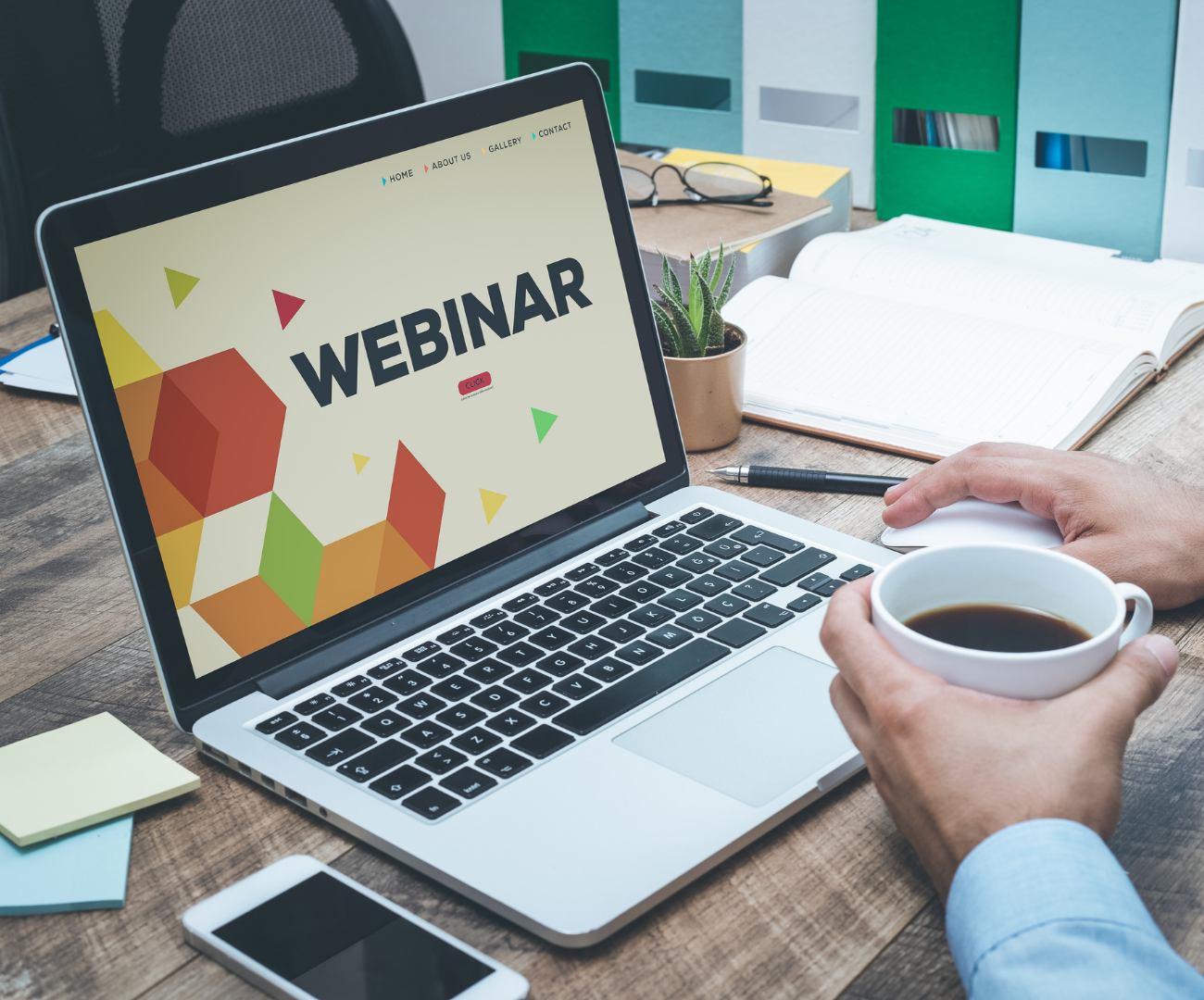As the world becomes increasingly interconnected, businesses are finding that they need to expand their reach to remain competitive. One way they are doing this is by planning webinars.
While webinars have many benefits of their own, there are certain things to keep in mind when planning a webinar.
Wondering what to keep in mind when it comes to planning a webinar? In this blog post, we will discuss many different crucial things to keep in mind when planning a webinar. We’ll guide you through all the aspects that would make you a pro at hosting a webinar.
What is a Webinar?

A webinar is an online seminar that allows you to present information and interact with your audience in real time. They are a great way to share your knowledge and connect with people from all over the world.
They are usually presented as a slide presentation, with the presenter talking over the slides. However, some webinars also include live demonstrations, video, and audio. You can also use them to conduct interviews, panel discussions, and Q&A sessions. Webinars are often used to provide training or to sell products and services. They can be live, or they can be recorded.
They typically last anywhere from 30 minutes to an hour but can be longer or shorter depending on the topic and format. Unlike a live seminar, people can participate in a webinar from anywhere in the world as long as they have an internet connection.
Webinars are a great way to reach a large audience without having to travel. They are also less expensive than in-person seminars, and they can be more interactive because participants can ask questions and provide feedback in real time.
Benefits of Webinars
Webinars are a great way to engage with your audience and deliver content in an engaging and interactive format.
Here are some of the benefits of hosting a webinar:
You can reach a large audience with minimal effort – thanks to the power of the internet, you can reach a global audience without having to leave your office or incur any travel costs. Webinars are flexible – they can be held at any time, day or night, to suit the schedules of your audience. And if you need to reschedule, it's easy to do so with little notice.
They are cost-effective – compared to other marketing channels such as print or television advertising, webinars are very cost-effective, often costing only a fraction of traditional marketing methods.
They are an increasingly popular way to reach out to potential customers and clients. They are cost-effective, allow for a large audience, and can be easily recorded and shared. They offer a low-cost way to reach a large number of people and can be easily recorded and shared online.
They are engaging – unlike many other marketing channels where audiences can easily tune out or switch off, webinars require active participation from attendees, meaning you have their full attention for the duration of the event. This makes them ideal for delivering impactful messages that will resonate with your audience long after the event has ended.
Additionally, webinars provide an interactive experience that can help build relationships between the presenter and the audience. When done well, webinars can be an extremely valuable marketing tool.
Things to Keep in Mind when Planning A Webinar

Planning to conduct a webinar? They are a great way to engage with your audience and generate leads. But before you can start reaping the benefits of webinars, you need to put in some time and effort to plan your event. Here's what you need to do:
1. Determine the Objectives
In order to determine the objectives of your webinar, it is important to consider what you hope to achieve with the event.
Are you looking to generate leads, build brand awareness, or do something else entirely? Once you have a clear understanding of your goals, you can begin to craft objectives that will help you reach them.
For example, if your goal is to generate leads, an objective could be to get at least 50 attendees to sign up for your mailing list. Or, if you're hoping to build brand awareness, an objective could be to secure media coverage from at least 3 major outlets.
Whatever your goals may be, make sure that your objectives are specific, measurable, achievable, relevant, and time-bound (SMART). This will help ensure that your webinar is successful in achieving its intended purpose.
They are an excellent way to promote your product or service to a large audience. But what are the objectives of your webinar?
Some common objectives for webinars include:
- Generating leads
- Building brand awareness
- Educating customers about your product or service
- Increasing sales or conversions
Your specific objectives will depend on your business goals. But whatever objectives you set for your webinar, make sure they are realistic and achievable. Planning and preparing for a successful webinar takes time and effort. But if you create a well-organized and informative webinar, you can achieve your business goals and build lasting relationships with your customers.
Whatever your objectives might be, you can use Oreed’s learning platform to host your upcoming webinar. The main purpose of a webinar is to educate your customers on how they can use your system so with Oreed, you can manage data, as a CRM, and event management.
2. Decide A Topic and Presenters
Now that you've decided to conduct a webinar, it's time to choose a topic and some presenters.
First, consider what your audience would like to learn about. Once you have a general idea, start narrowing down your focus.
- Do you want to discuss a specific industry trend?
- Introduce a new product?
- Or share best practices for using your products?
When deciding the topic and the format, one question that you should keep in mind is how would you design a webinar that would be interactive. This aspect can be facilitated by Oreed’s all-in-one event management platform. With its gamification features, you can keep your attendees engaged and interested in the content and objectives throughout the webinar.
Once you've decided on a topic, it's time to find some presenters. If you have experts in-house, they may be the perfect people to share their knowledge with your audience. But don't limit yourself to just internal speakers – look for thought leaders in your industry who can provide valuable insights on your chosen topic.
3. Market your Webinar
Now that you have a topic and some great presenters lined up, it's time to start promoting your webinar. Use social media, email marketing, and other channels to get the word out and build excitement for the event. And don't forget to include all the important details like the date, time, and how to register.
If you opt for Oreed’s platform, you will get a 360-user understanding of your customers. From all the data about their activities, all the events they have attended, and how many activities they have attended in a month, quarter, or year, Oreed will help you get information about it all.
You can then design your marketing plan and promotional strategies according to your customer’s requirements and needs for future events.
4. Select A Platform
There are a few things to consider when selecting a platform for your webinar.
- First, you'll want to think about the size of your audience. If you're expecting a large number of attendees, you'll need to choose a platform that can accommodate them.
- Additionally, you'll want to consider the features that are important to you. For example, if you need to have video and audio capabilities, you'll want to make sure the platform you select offers those features.
- Finally, you'll want to think about the cost. Some platforms are free, while others come with a monthly or annual fee. Choose the option that makes the most sense for your budget and your needs.
If you're looking to host a webinar, Oreed's all-in-one event management platform is a great option.
With everything you need to get started in one place, it's easy to get your webinar up and running quickly and efficiently. Oreed offers a variety of features to make sure your webinar goes off without a hitch. Its intuitive interface makes it easy to set up and manage your event, while its support ensures that help is always on hand if you need it.
Additionally, Oreed's platform is designed to be scalable, so whether you're hosting a small event or a large-scale conference, they can accommodate your needs. So why not give Oreed a try for your next webinar? With everything they have to offer, you're sure to have a successful event.
Host your Webinar with Oreed
If you are looking for a platform to host your upcoming webinar, Oreed might be the best option out there for you.
With Oreed’s platform, you can manage
- Registration
- Attendance
- Sponsors
Along with this, at the end of your webinar, it will also help generate certificates for the attendees for motivation and future correspondence.
Webinars are a great way to engage with your audience and deliver content in an engaging and interactive way. Oreed's gamification features make webinars even more engaging by adding a competitive element to the mix.
With Oreed, you can create quizzes, polls, and challenges for your audience to complete during the webinar. This not only keeps them engaged but also provides valuable feedback that you can use to improve your content.
Promote lifelong learning through Oreed by experiencing the most powerful all-in-one training and development intelligent platform that streamlines all your organization's learning, training, and development activities in one place.
Final Thoughts
.png)
With all the things mentioned above, you can surely make your event a massive success. So why not give Oreed a try for your next webinar? With everything it has to offer, you're sure to have a successful event.





